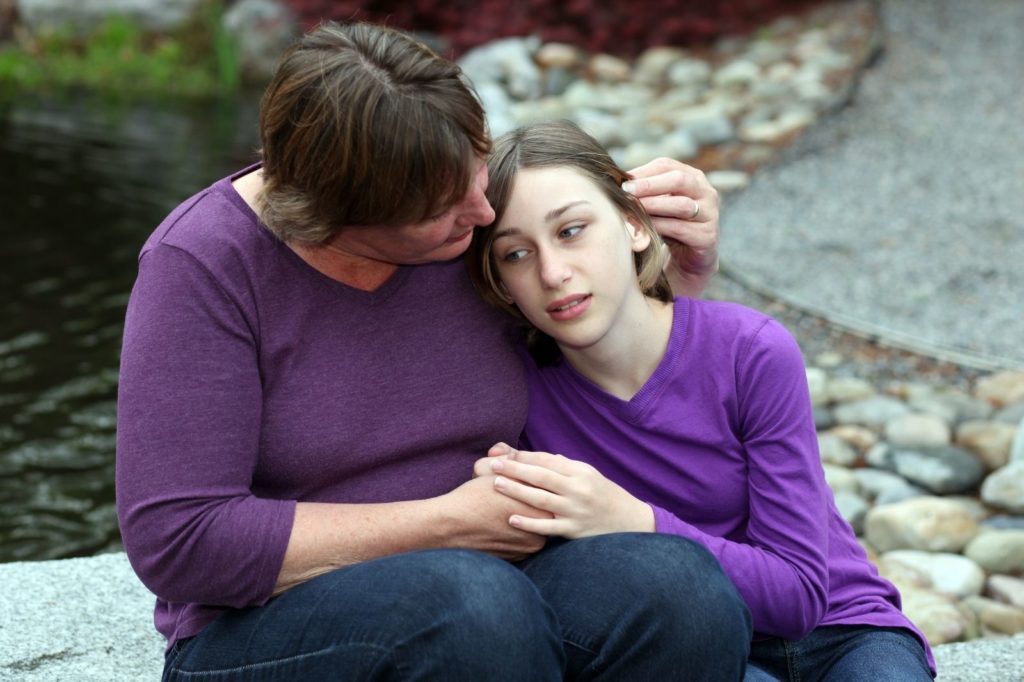When you were a kid, maybe you read the book Alexander and the Terrible, Horrible, No Good, Very Bad Day by Judith Viorst (or maybe you saw the movie). Lots of bad things happen to Alexander in that book, from waking up with gum in his hair to having to eat lima beans for dinner.
Now that you’re older, Alexander’s catastrophes probably seem kind of silly. The truth is that the older we get, the more serious the problems we face become. What do you do when your significant other breaks your heart? How do you handle a cyberbullying incident where you are the target? What if you get in trouble at school?
With COVID-19, it seems like we are all facing urgent concerns, like what if I get sick? What if someone I love gets sick? What if someone I love dies?
Finding out you are getting lima beans for dinner can feel like really bad news when you’re six (and maybe even when you’re 16). Finding out you didn’t make the team or get into your dream college can feel a whole lot worse. And facing your own or a friend’s serious illness, going through a break-up, or experiencing your parents’ divorce can feel like the end of the world.
When I asked my daughter Cass, now a junior in college majoring in social work, about the worst news she had ever received, she told me it was how disappointed she felt when she missed getting her International Baccalaureate Diploma by one point in high school. The IB program was a big deal to her. But she always knew she would be OK. She was disappointed by the news, not destroyed.
Then she remembered something much worse. Her parents divorced when she was nine, and Cass, like many children in split families, struggled. After a frightening conflict with her father, Cass had been allowed to stay with me for a while, but then she found out she would have to go back.
“When you said I had to go back to Dad’s, I didn’t know I was going to be OK at first,” Cass told me, “but I did know that I would live through it somehow.”
I Just Got Bad News. Now What?
When you get really bad news, you may not immediately know that you’ll get through it. In fact, it’s okay—and normal!—to not be OK at first. The key is to remember that any problem, no matter how difficult, can become part of a process. You’ll learn and grow through the experience as long as you keep going, rest when you need to, and find your resources.
This is how Cass managed her grief: “Looking back at that event now, I realize that this gave me a lot of the strength and skills that I now use in my everyday life,” she told me. “I even think that may have been when I decided that I wanted to help other kids when I grew up so that they would have support when they went through something really bad.”
Facing really bad news means dealing with loss and grief. Psychiatrist Elisabeth Kubler-Ross developed a theory called “The Five Stages of Grief” to explain how people deal with either their own terminal illnesses or with the death of loved ones. The theory has since been applied to any experience that involves grieving. The five stages are:
- Denial
- Anger
- Bargaining
- Depression
- Acceptance
People who are experiencing a loss don’t necessarily move through these stages in any set order. In fact, it’s common to switch from one (“This can’t be happening to me!”) to another (“If I just do this one thing, maybe this will go away”). Being aware that these feelings are normal is the first step of your journey from grief to acceptance.
Because your brain is changing so much during your adolescent years, bad news can feel especially overwhelming and scary right now. Teen brains can be more susceptible to stressful life events, which can lead to mental health conditions like anxiety or depression, according to the National institute for Mental Health. Traumatic events, like accidents, natural disasters, or global pandemics, can cause physical symptoms, including sleeping problems, nightmares, and trouble engaging in activities you normally enjoy.
Knowing how to manage that stress ahead of time through tools like mindfulness can help you prepare for those inevitable bad days. That’s why it’s so important to find support now. It’s pretty much a guarantee that you will face loss. Knowing who your supports are before you’re in a crisis can be a literal lifesaver. Of course, friends and family are an important part of your support network. Trained mental health professionals, like therapists and psychiatrists, can help you to cope with traumatic life events so that you can find a way to be yourself again.
Once you’re past the immediate shock, you may even find meaning in your most difficult challenges and most horrible days, just like Cass did. The important thing in the moment is just to hold on. Whatever it is, you can get through it, and you don’t have to do it alone.










